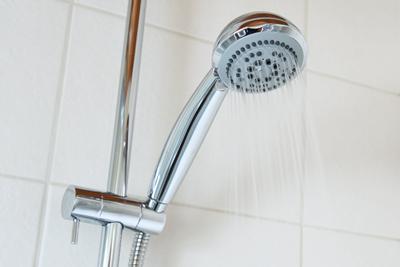Water metering can reduce consumption by a fifth but only high income households gain financially

New research has indicated that water consumption can be reduced by more than 20%, significantly more than current policy targets following the installation of meters. Whilst this shows that overall benefits of water metering outweigh the costs, the researchers also found that high income households benefit financially by switching to a metered tariff despite reducing their consumption by considerably less than lower income households.
The study, led by Dr Carmine Ornaghi from the University of Southampton, looked at data from over 150,000 customers who were fitted with a water meter as part of Southern Water’s Universal Metering Programme between 2011 and 2016. Households in this programme were still charged at their unmetered rate for the first three months after installation, allowing the researchers to compare water consumption levels before and after the customers started paying for the amount of water they used.
The results showed that overall water consumption fell by 22% at an average of 89 litres per household per day by the time the customer receives their fourth metered bill – around 2 years after meter installation.
Dr Ornaghi’s findings also highlighted large differences in the effects of metering across individual households, with small families living in high value houses more likely to be better off with a water meter. Other key findings were:
- In total, 46% of households were better off with a water meter, 35% worse off and 19% saw no change.
- Households who were better off reduced their consumption by on average 24 litres per day compared to 194 litres per day for those who were worse off.
- More affluent households benefitted financially by around £37 per year on their water bills compared to pre metered levels.
- Less affluent households stood to lose out by around £23 per year if they continued water consumption at the same level as before meter installation, although in practice after adjusting their consumption, their bills were broadly unchanged.
Explaining his findings, Dr Ornaghi said:
“Our analysis shows that there is considerable variety in the way households react to metering. In particular, we saw low responsiveness in the group of households that are better off under the metered tariff—typically, small households living in expensive dwellings.
“The fact that the largest reduction in consumption is observed in the group of customers that are worse off under the new tariff scheme means that, from society’s point of view, customers that should receive a meter do not have a financial incentive to opt in to any metering scheme.”
Whilst his results suggest that a selective metering programme where only larger households receive a meter could be the most effective way to ensure benefits of metering always outweigh the costs, Dr Ornaghi recognises that this also presents technical and social problems, in particular by increasing perceptions of inequalities in water consumption.
“All these considerations make the implementation of universal metering easier to manage and less risky than selective metering.” he added. “An alternative approach—one that is easier to implement and, possibly, less controversial—would be to meter only districts where water consumption is above average. Studying the effects of selective metering at district level and those of universal metering would be an interesting topic for future research.”
The full report by Dr Ornaghi and Mirco Tonin (Free University of Bozen-Bolzano, Italy) is published in the journal Oxford Economic Papers.
